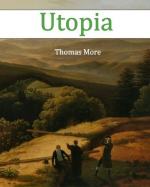|
This section contains 14,811 words (approx. 50 pages at 300 words per page) |

|
SOURCE: "The Utopian Propensity," in Utopian Thought in the Western World, Cambridge, Mass.: The Belknap Press of Harvard University Press, 1979, pp. 1-29.
In the following excerpt from their introduction to Utopian Thought in the Western World, the critics discuss several aspects of Utopian literature, including: Utopian literary forms, critical approaches to interpretation of Utopian literature, the influence of New World exploration and scientific discovery on Utopian thought, the cultural traditions that have influenced the western conception of utopia, and the characteristics of the Utopian writer.
Boesky on Utopias of the seventeenth century:
In the 1640s and 1650s, while Milton was earning a name for himself through the achievements of his "left hand," a prodigious number of Utopias were being written and published in England. There were as many as two hundred sects in England in the middle of the century, and almost every sect had its utopia….
English...
|
This section contains 14,811 words (approx. 50 pages at 300 words per page) |

|


